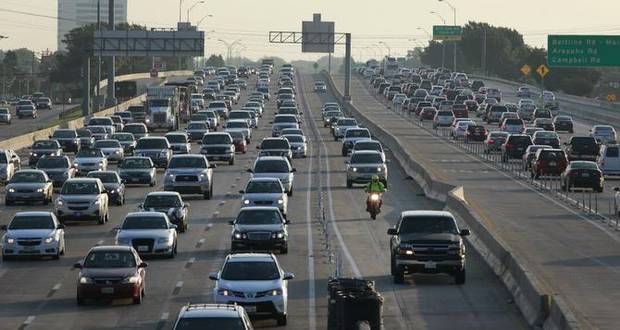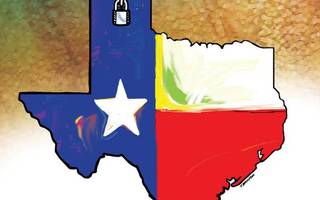Most Dallas metro-area folks spend way too much time stuck in traffic and planning schedules around that miserable creep-and-crawl commute. According to a recent study, the typical Dallas metro-area motorist spends at least 45 hours in traffic each year at a cost of $957 in lost time and wasted fuel.
The bad news: Traffic congestion in metro Dallas is only getting worse. Texas must invest about $5 billion a year more for highway construction and road maintenance to keep traffic congestion at current levels, according to the Texas Transportation Institute at Texas A&M University.
Texans will have the opportunity to make a critical investment in our state’s economic future and safety of the traveling public by supporting Proposition 1 in the Nov. 4 election. Proposition 1 represents the single largest revenue increase to the State Highway Fund in Texas history with a projected $1.7 billion a year. This measure will provide much-needed funding for our state’s aging and congested transportation system and will do so without raising taxes, charging new fees or using tolls.
The state’s main funding sources for transportation are a federal gas tax, a state gas tax and a state vehicle registration fee. The state gas tax has not been adjusted since 1991 and vehicle registration fees have not significantly changed since 1987. The cost of building and maintaining roads and bridges has increased more than 150 percent in that time.
To keep up with Texas’ growing road preservation needs and congestion relief demands, we have borrowed almost $2 billion a year over the last decade. The credit card is maxed out, we have spent all the borrowed money and it is now time to pay the bill.
Next year, for the first time in state history, the Texas Department of Transportation will spend more money on debt payments than it will on new roads and bridges.
An annual $5 billion problem needs a big solution. If passed, Proposition 1 will help solve part of the problem by constitutionally dedicating a portion of the state’s oil and gas severance tax to the State Highway Fund. Texas has been blessed with booming oil and gas activity over the last several years and will for many more to come. Texas collects billions in revenue every year from the oil and gas industry, and Proposition 1 asks you to dedicate a portion of this revenue to a core function of government: a safe and dependable transportation system.
Not only will Proposition 1 represent the largest revenue increase to the State Highway Fund in Texas history, with about $1.7 billion a year, but we also will see the same amount transferred to our state’s savings account. This proposition will authorize annual deposits to the highway fund for construction and maintenance of the state’s non-tolled roads and bridges without raising fees or taxes.
Additionally, Proposition 1 requires the Texas Department of Transportation to identify $100 million in efficiencies within its own budget to pay down existing debt.
Roads are expensive, but borrowing and delaying projects will cost much more over time. We must provide a sustainable revenue source for the future demands on our roads and bridges. Proposition 1 will improve congestion, save time and save lives. We strongly endorse Proposition 1 as part of the overall transportation funding solution.
Sen. Robert Nichols, R-Jacksonville, is chairman of the Senate Transportation Committee. Rep. Joe Pickett, D-El Paso, is chairman of the House Select Committee on Transportation Funding.











